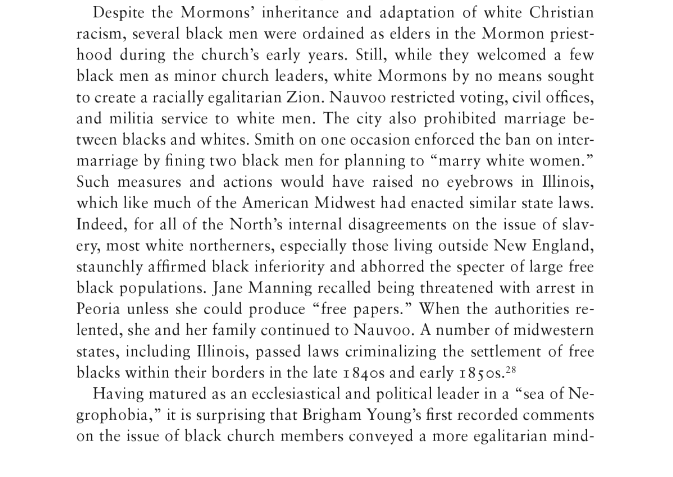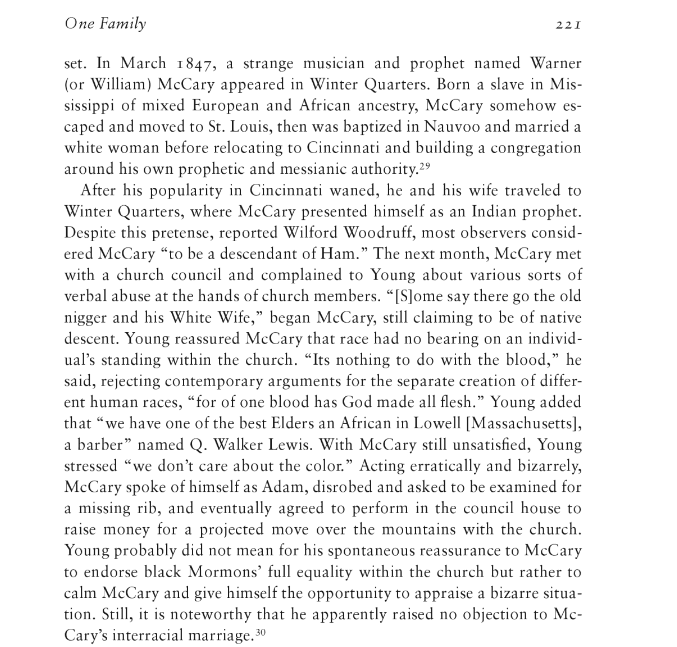John Turner comments on Brigham Young's initial egalitarian feelings.
- Type
- Book
- Source
- John Turner Non-LDS
- Hearsay
- Secondary
- Reference
John Turner, Brigham Young: Pioneer Prophet (Cambridge: Belknap, 2012), 220-221
- Scribe/Publisher
- Belknap Press
- Audience
- Reading Public
- Transcription
Having matured as an ecclesiastical and political leader in a "sea of negrophobia," it is surprising that Brigham Young's first recorded comments on the issue of black church members conveyed a more egalitarian mind-set. In March 1847, a strange musician and prophet named Warner (or William) McCary appeared in Winter Quarters. Born a slave in Mississippi of mixed European and African ancestry, McCary somehow escaped and moved to St. Louis, then was baptized in Nauvoo and married a white woman before relocating to Cincinnati and building a congregation around his own prophetic and messianic authority.
After his popularity in Cincinnati waned, he and his wife traveled to Winter Quarters, where McCarty presented himself as an Indian prophet. Despite this pretense, reported Wilford Woodruff, most observers considered McCarty "to be a descendant of Ham." The next month, McCarty met with a church council and complained to Young about various sorts of verbal abuse at the hands of church members. "[S]ome say there go the old nigger and his White Wife," began McCarty, still claiming to be of native descent. Young reassured McCarty that race had no bearing on an individual's standing within the church. "its nothing to do with the blood," he said, rejecting contemporary arguments for the separate creation of different human races, "for of one blood has God made all flesh." Young added that "we have one of the best Elders an African in Lowell [Massachusetts], a barber" named Q. Walker Lewis. With McCarty still unsatisfied, Young stressed "we don't care about the color." Acting erratically and bizarrely, McCarty spoke of himself as Adam, disrobed and asked to be examined for a missing rib, and eventually agreed to perform in the council hose to raise money for a projected move over the mountains with the church. Young probably did not mean for his spontaneous reassurance to McCarty to endorse black Mormons' full equality within the church but rather to calm McCarty and give himself the opportunity to appraise a bizarre situation. Still, it is noteworthy that he apparently raised no objection to McCary's interracial marriage.
- Source Link
- https://www.google.com/books/edition/Brigham_Young/nGgSuTW-dgIC?hl=en&gbpv=1&kptab=overview
- Citations in Mormonr Qnas
The B. H. Roberts Foundation is not owned by, operated by, or affiliated with the Church of Jesus Christ of Latter-day Saints.


